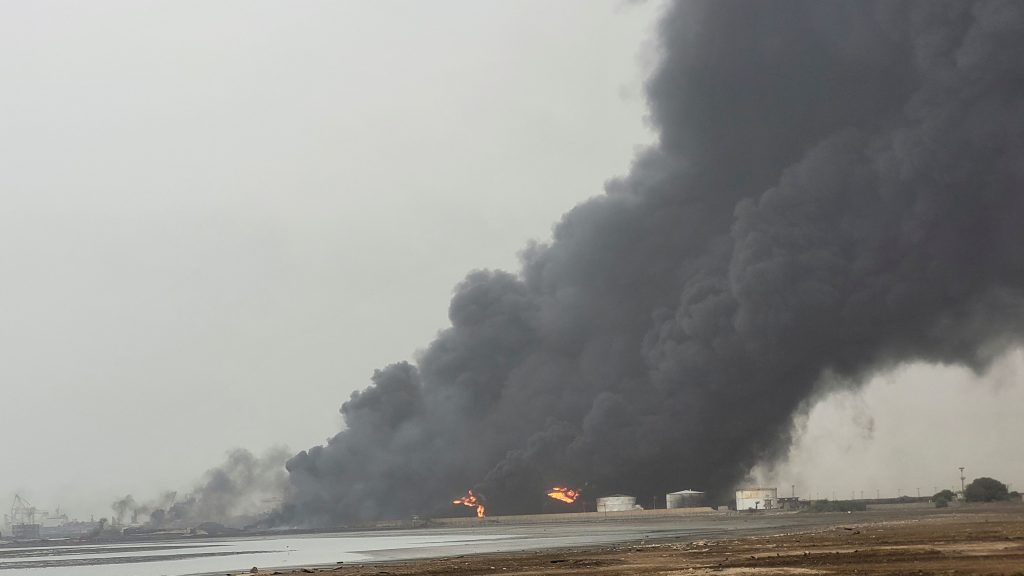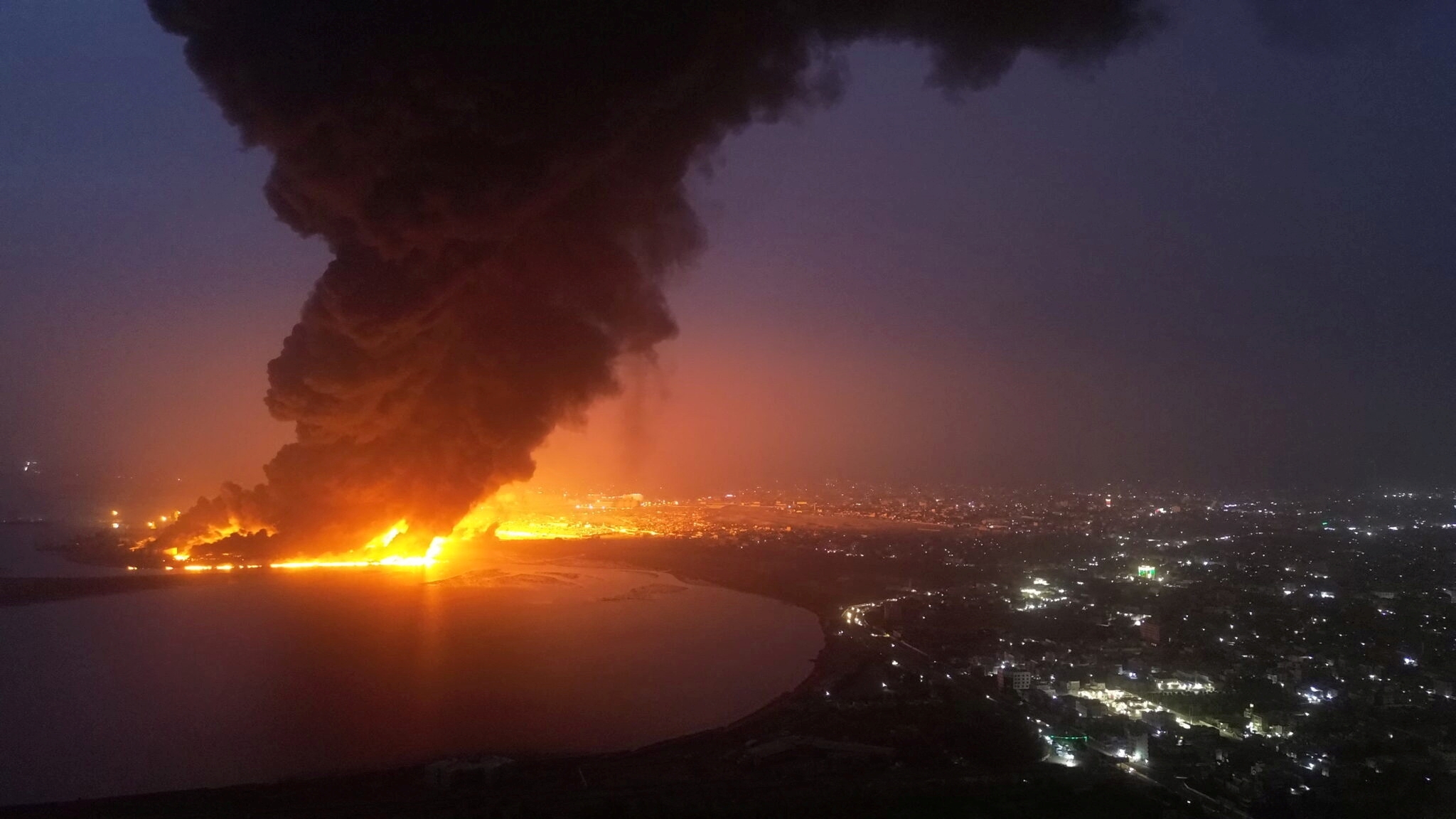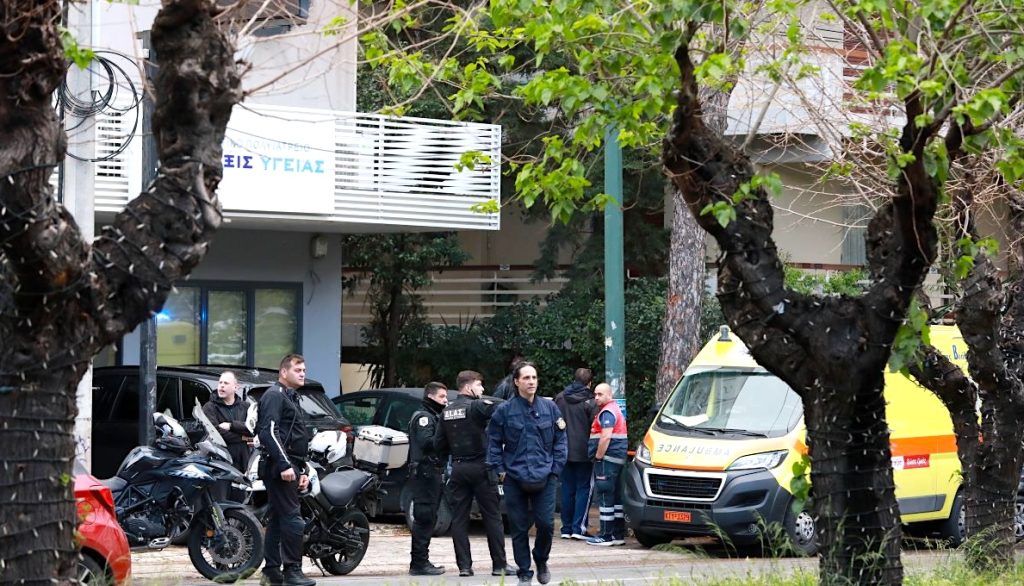TEL AVIV—The Israeli military for the first time staged a direct airstrike against Houthi rebels in Yemen, a day after the Iran-backed militant group launched a drone attack in Tel Aviv that killed one person.
Israel said its F-15 jet fighters struck several targets in the Houthi-controlled port city of Hodeidah, which set fuel tanks ablaze and damaged the city’s power plant, a Houthi official said. Health authorities said several people had died and more than 80 were wounded. Israel’s military didn’t respond to a request for comment on casualties.
Israel’s military said it downed a surface-to-surface missile launched by Yemen on Sunday, using its advanced Arrow 3 aerial defense system. The Houthis later claimed responsibility for launching ballistic missiles toward Israel on Sunday.
Israel said it acted Saturday in retribution for hundreds of Houthi attacks against the country since October, including the one in the heart of Israel’s commercial capital on Friday. That drone strike marked the first time the Houthi militia successfully hit Tel Aviv nine months into Israel’s ongoing war against Hamas militants in Gaza that the Houthis say they are protesting. Israel’s aerial defense array has intercepted most of the Houthi attacks.

Smoke rises from the site of Israeli air strikes at the port of Hodeidah, in Hodeidah, Yemen July 21, 2024. REUTERS/Stringer
Saturday’s attack in Yemen, more than 1,000 miles from Israel, is one of the furthest strikes that Israel’s air force has conducted, said Rear Adm. Daniel Hagari, the Israeli military’s chief spokesman.
“From the beginning of the war, I made it clear that Israel would harm anyone who harmed us,” Israeli Prime Minister Benjamin Netanyahu said Saturday immediately following the strikes. The fresh attack “makes it clear to our enemies that there is no place that the long arm of the State of Israel can’t reach,” he said.
Israeli and U.S. defense officials said the U.S. was notified before the operation. Defense Secretary Lloyd Austin spoke twice with his Israeli counterpart about the hostilities since Friday, said an Israeli defense official.
An Israeli military official said the airstrikes were focused on “dual-use facilities” within the port, which the official called “the main supply route for the transfer of Iranian weapons to Yemen.” Such transfers would violate a nearly decadelong United Nations arms embargo against the group. Tehran denies arming the Houthis despite ample evidence to the contrary. The Houthis likely used a modified version of the Iranian-made Samad drone in its Friday attack, the Israeli military said.
Houthi spokesman Mohammed Abdul Salam said the Israeli military struck civilian targets, including oil tanks and a power plant. Hodeidah has been used by the Houthis as a key base to launch missile and drone attacks on commercial shipping in the Red Sea. But it also hosts civilian facilities, including grain silos that are critical to Yemen’s chronically malnourished population.
After Saturday’s attack, several Houthi leaders hid in safe houses and in a mosque in San’a and switched off their phones due to worries that Israel could target them, said a separate Houthi official. The Houthis pledged to respond to Israel’s strikes on Hodeidah.
“The strikes are a first and mark a significant escalation,” said Hisham Al-Omeisy, a Yemen analyst at the European Institute of Peace, a Brussels-based think tank.
The Houthis have attacked international shipping near Yemen’s waters as well as fired numerous drones and missiles against Israel in support of Hamas militants in their fight against Israel. Other Iran-backed groups in Iraq, Syria and Lebanon also have attacked Israel in what threatens to expand into a broader regional war.
Chief among the expanded fronts is between Israel and Hezbollah, the U.S.-designated terror group in Lebanon. Tit-for-tat exchanges of fire have forced tens of thousands of civilians in both countries to flee the border region.
An Israeli military official also called Saturday’s strike a step up in Israeli activity against the Houthis. “It was calibrated to send exactly the message that we wanted: a message of deterrence to the Houthis and to everybody else who is watching in the region,” the official said.
Until Saturday, Israel had limited its engagement with the Houthis to intercepting the over 200 projectiles it says have been fired at Israeli territory from Yemen since October. The U.S. military had taken the lead with strikes against the Houthis to defend maritime shipping, launching airstrikes on several targets in Yemen in response to at-times deadly Houthi attacks.
An Israeli defense official said Israeli policy had been to let the U.S.-led multinational coalition manage direct engagement with the Houthis. Israel changed policy in response to Friday’s fatal strike, the official said, the first time that the Houthis killed an Israeli civilian in the continuing conflict.
Israel had operational plans for Yemen at the ready, in line with orders the defense minister had issued months earlier.
Nancy Youssef contributed to this article.



